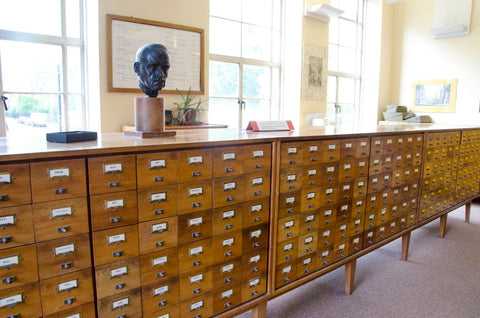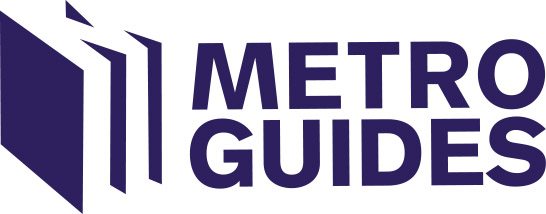The Warburg Institute
University of London, School of Advanced Study
Woburn Square, WC1H 0AB
020 7862 8949
warburg.sas.ac.uk
Goodge St and Russell Sq LU
Access restricted to postgraduate students and researchers
This exceptional library is dedicated to European cultural history, and is based upon the collection of the German banking heir, Aby Warburg. Warburg dedicated his life to the study of human expression and the transmission of ideas across space and time. For this purpose he compiled and organised a library of around 60,000 books. After Warburg’s death in 1929, the threat posed by the rise of the Nazis led to the migration of the library and institute to London. After the Second World War the Institute was incorporated into the University of London and since 1958 has been housed in a purpose built building on Woburn Square. Over the years the Library has grown to include over 350,000 books, with a Photographic Archive containing 350,000 photographs.
The Library and Photographic Archive were the research tool from which Warburg developed his last and unfinished work, the Mnemosyne Atlas. The Atlas constitutes an attempt to represent the theory and history of human expression from Ancient to Modern times, as well as the migration and transformation of images with considerable emphasis on the afterlife of mythology.


The classification of the Library was meant to sustain Warburg’s work. This has given rise to a taxonomy that involves four main categories: Image (art history), Word (language and literature, particularly the survival of classical literature), Orientation (religion, science and philosophy) and Action (social and political history). Within these categories books are arranged chronologically, rather than alphabetically. This means that a researcher browsing the shelves is able to build up a picture of the evolution of a particular discipline. This might seem a bit confusing, but in practice, the appeal of the collection transcends these issues and the staff are always on hand to help track down a particular book.
Access to the Warburg Institute is restricted to postgraduate students, scholars and researchers by appointment. The institute is in the process of digitising as much of its collection as possible and has already produced 30,000 digital images and 8,000 electronic books, all of which are freely available online. The Institute also runs a busy programme of lectures, colloquia and seminars, which are open to the general public.




